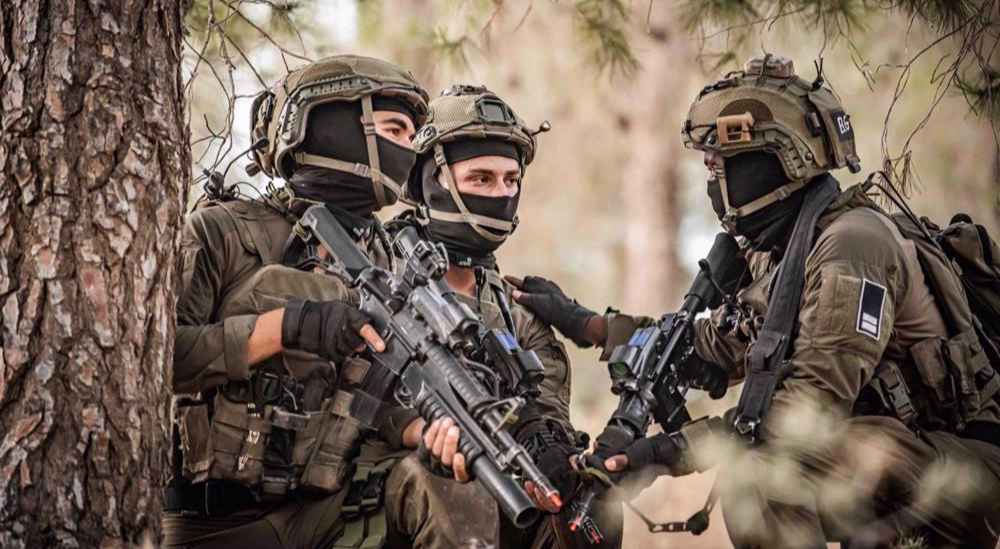
In this file photo, soldiers from the Israeli air force's elite Shaldag Unit take part in an exercise. (Photo via Twitter)
Tel Aviv, March 19 (RHC)-- Hundreds of Israeli military reservists have announced that they will not report for reserve duty as of Sunday in protest against a plan by the far-right and coalition cabinet led by prime minister Benjamin Netanyahu to reform the regime’s judicial system.
Officers and soldiers in the military intelligence’s special operations division and cyber warfare units said they will stop showing up for volunteer duty as of next week. “The pistol is pressed firmly ... and the trigger will soon be pulled,” the protest organizers wrote in a statement, citing the right-wing administration’s intention to hold the final Knesset (parliament) votes on Sunday on legislation that would seriously restrict courts or legislators from removing an unfit prime minister from office.
Organizers of the group, which said they include 450 reservists in special operations and 200 in cyber warfare, will therefore “not show up for volunteer reserve service” as of today, Sunday.
Separately, 100 senior reserve officers in an elite unit of the Israel air force issued a letter, saying they were unsure they could continue to serve moving forward under such a regime. According to a Channel 12 news report, the officers wrote that their “conscience may not allow us to continue serving in the reserves.”
A lieutenant colonel in the unit said that the concerned officers have been working behind the scenes to make their voices heard, but the cabinet’s outright rejection of president Isaac Herzog’s alternative framework on Wednesday night forced them to go public.
In recent weeks, calls among Israeli military reservists to refuse to serve due to the contentious planned judicial changes have roiled the army. In late February, more than 100 reservists in the military intelligence’s special operations division issued an open letter, first warning of plans to end their volunteer service if a broad compromise on the overhaul is not reached. And a week later, around 150 soldiers from cyber warfare units similarly warned they would stop volunteering for the reserves if the judicial overhaul is approved.
On Thursday, Israeli protesters pressed ahead with demonstrations against the planned judicial reforms, after Netanyahu rejected a compromise proposal from Herzog that was meant to diffuse the ongoing crisis in the regime.
Protesters in al-Quds drew a red streak on the streets leading to the so-called supreme court, and a small flotilla of boats was blocking the shipping lane off the coast of the northern city of Haifa. The controversial “legal reforms” serve as the centerpiece of the policies of the Netanyahu-led cabinet, which he cobbled together late last year by wooing ultra-Orthodox and hard-right parties.
They seek to weaken the regime’s supreme court by robbing it of the power to strike down either the cabinet or the legislature’s decisions. Another element of the reforms would give the 120-member parliament the power to overrule the court’s decisions with a simple majority of 61 votes. The reforms would also empower the Knesset to amend the so-called Basic Laws – the regime’s quasi-constitution – in any way it sees fit.
Observers say the reforms can potentially enable the Knesset to annul a set of corruption charges that Netanyahu is being tried on. The Israeli prime minister is being sued for bribery, fraud, and breach of trust.
The Knesset also advanced a bill that would make it harder to remove Netanyahu over the corruption charges that still hang over him. The bill would allow the Israeli parliament to declare a prime minister unfit to rule only for physical or mental reasons and would replace current law that opens the door for a leader to be removed under other circumstances.

